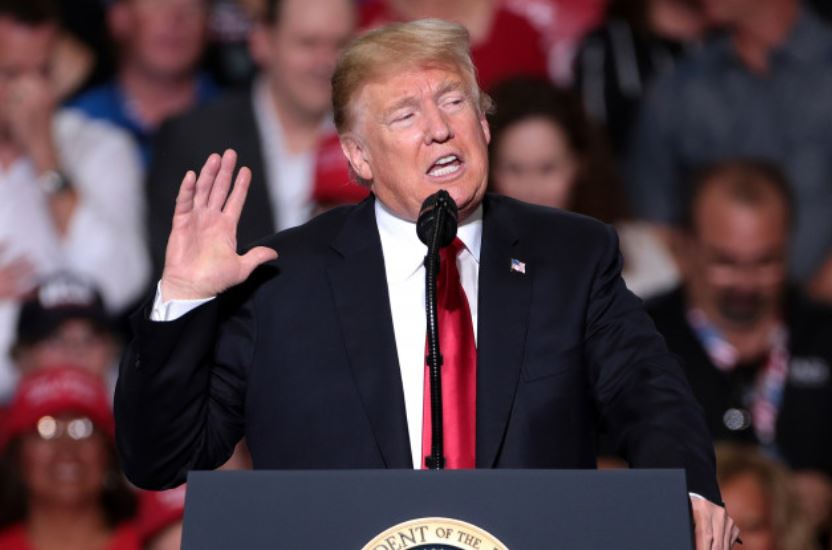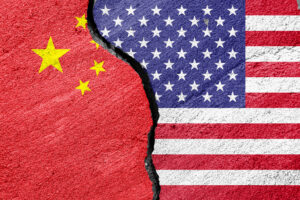Trump Pushes Back on Reports U.S. Will Remove China Tariffs
Financial markets in the U.S. and globally fell Friday on Trump's comments. Gage Skidmore / Wikimedia Commons
Gage Skidmore / Wikimedia Commons
WASHINGTON — President Donald Trump on Friday dismissed a Chinese official’s assertion that his administration has agreed to roll back some of the higher tariffs it’s imposed on Chinese goods.
The Chinese official had said Thursday that the two sides had agreed to a phased cancellation of their tariff hikes as part of an emerging agreement.
Trump’s pushback suggested that negotiations haven’t progressed as far as hoped as the world’s two biggest economies struggle to negotiate an end to their trade war, which has hurt both economies.
“They’d like to have a rollback,” Trump told reporters at the White House, referring to the Chinese. “I haven’t agreed to anything.”
The two sides have been working on an initial “Phase 1” deal that was announced Oct. 12 but that still isn’t final.
Financial markets in the U.S. and globally rallied Thursday at the prospect of an agreement to wind down the U.S.-China trade fight, but then fell Friday on Trump’s comments. The Dow Jones industrial average dropped 48 points, or 0.2%, in midday trading.
Trump repeated his claims that China wants a deal more than the United States and that he is happy taking in tariff revenue. The president says the tariffs are paid by China, but studies conducted since the tariffs were imposed find that Americans businesses and consumers are paying them.
“Frankly, they want to make a deal a lot more than I do,” Trump said. “I’m very happy right now. We’re taking in billions of dollars.”
A private sector source with knowledge of the talks said Thursday that the United States has agreed to suspend the duties Trump threatened to impose December 15th on about $160 billion of Chinese imports as part of the agreement. But there is dissension in the White House about whether and by how much to roll back 15% duties on another $112 billion of goods imposed Sept. 1.
The trade war stems from the Trump administration’s complaints that China is seeking to unfairly boost its high tech industries by stealing U.S. technology or forcing American companies to share it as a condition of doing business there. Most business groups and China trade experts agree that China has violated trade rules and have largely supported the administration’s tougher line.
Still, the tariffs have hurt both countries’ economies. China’s growth slowed to an annual rate of 6% last month, a healthy pace for more advanced economies but China’s slowest in three decades.
In the United States, businesses are dealing with the tariffs’ higher costs and are uncertain about their international supply chains. They have responded by cutting their investment spending in new plants and equipment. That’s helped lower U.S. economic growth to 1.9% at an annual rate in the July-September quarter from 3.1% in the first three months of this year.
A report released Wednesday by a trade group opposed to the duties found that Americans paid $7.1 billion in tariffs in September, a record high for a single month.
Once a “phase 1” deal is reached, the two sides will still need to decide where the two leaders — Trump and China’s Xi Jinping — will sign the pact. Trump said Friday that they could hold a summit in Iowa or elsewhere in U.S. “farm country.”
___
AP Writer Aamer Madhani contributed to this report.
Your support matters…Independent journalism is under threat and overshadowed by heavily funded mainstream media.
You can help level the playing field. Become a member.
Your tax-deductible contribution keeps us digging beneath the headlines to give you thought-provoking, investigative reporting and analysis that unearths what's really happening- without compromise.
Give today to support our courageous, independent journalists.








You need to be a supporter to comment.
There are currently no responses to this article.
Be the first to respond.